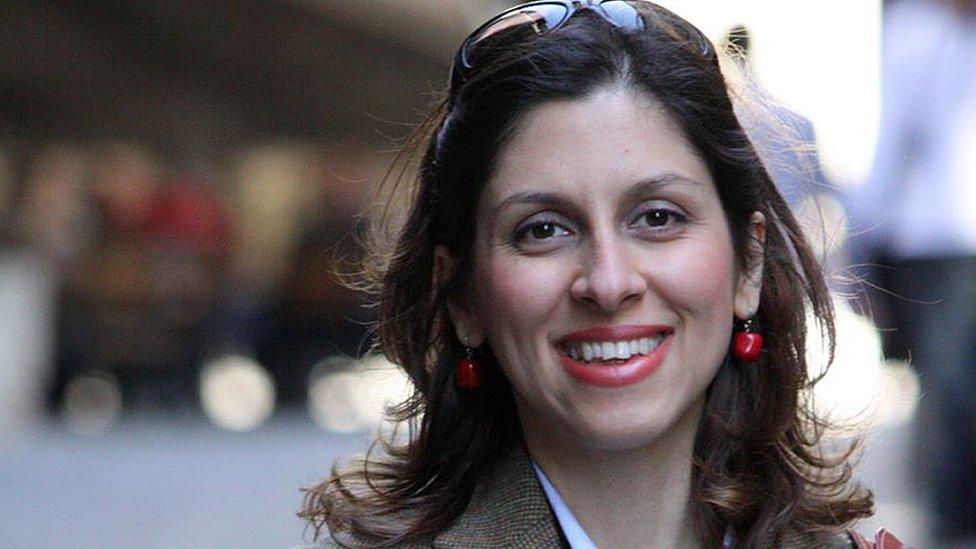UK failing citizens over hostage-taking, MPs say
- Published
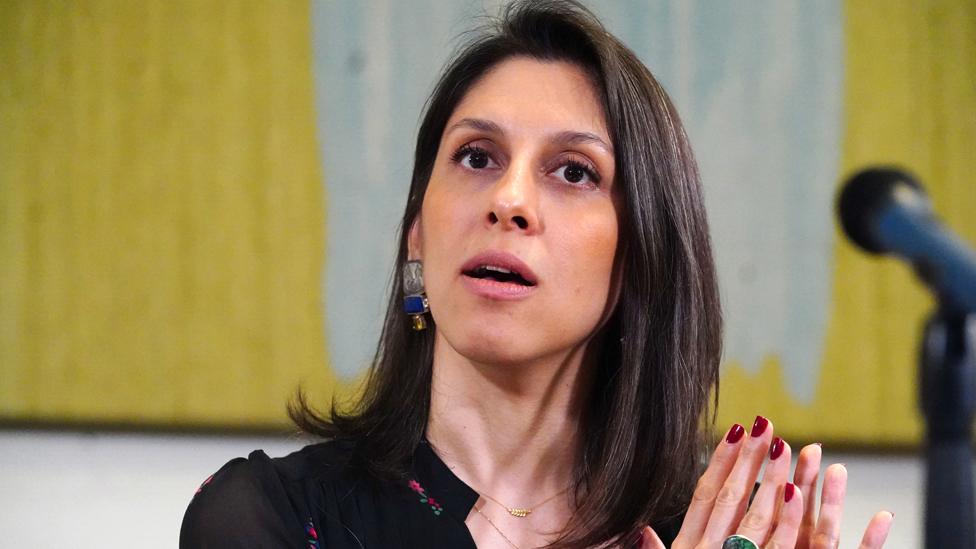
Nazanin Zaghari-Ratcliffe was detained in Iran for six years
The UK's response to the plight of those taken hostage is failing British citizens, a group of MPs have warned.
The Foreign Affairs Committee highlighted examples of "ministerial clumsiness" and "hurtful comments" in its communication with families.
Conservative MP Alicia Kearns said families were too often "left to feel they are an inconvenience".
The government said the best interests of British detainees was "at the heart" of its consular work.
The committee's inquiry examined recent high profile cases of state-level hostage taking, including Nazanin Zaghari-Ratcliffe and Anoosheh Ashoori, who were released in March 2022 after years of detention in Iran.
The British-Iranian nationals were arrested on spying charges, which they both denied.
In a new report, external, the committee found the government had failed to learn lessons from past cases and had been too slow to call out countries for state hostage-taking.
Ms Kearns, who chairs the committee, said the issue posed a growing threat to the UK, with abductor states "weaponising the citizenship of British nationals" and using them "as diplomatic bargaining chips".
The committee said communication around hostage-taking had been "been plagued by inconsistency and clumsiness" and that UK nationals had been "let down" by information shared by ministers.
It cited the example of Boris Johnson, when he was foreign secretary in 2017, wrongly saying Mrs Zaghari-Ratcliffe had been teaching journalism in Iran.
Her husband Richard told the committee the comment was used in evidence against her at a subsequent trial and in Iranian propaganda.
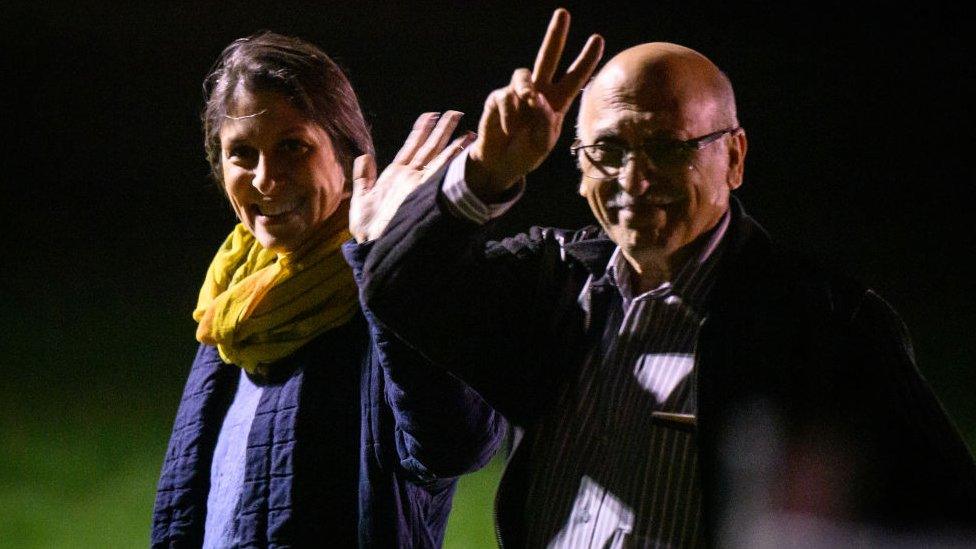
Nazanin Zaghari-Ratcliffe and Anoosheh Ashoori returned to the UK last year after being released
The report was also critical of then-Foreign Secretary Liz Truss's handling of the case of Morad Tahbaz, a British-born environmentalist still held in Iran, who also holds Iranian and US nationality.
It said Ms Truss did not stand by an agreement with the US that Mr Tahbaz would be released alongside Mrs Zaghari-Ratcliffe and Mr Ashoori in March 2022 and that his family first learnt this from the media.
She eventually called the family and told them "Morad is now a US problem", the report added.
Ms Kearns said the treatment of Mr Tahbaz's family was "frankly insensitive and hurtful".
"Families too often are left to feel they are an inconvenience," she told BBC Radio 4's Today programme.
"Too often dual nationals felt like their Britishness was in question."
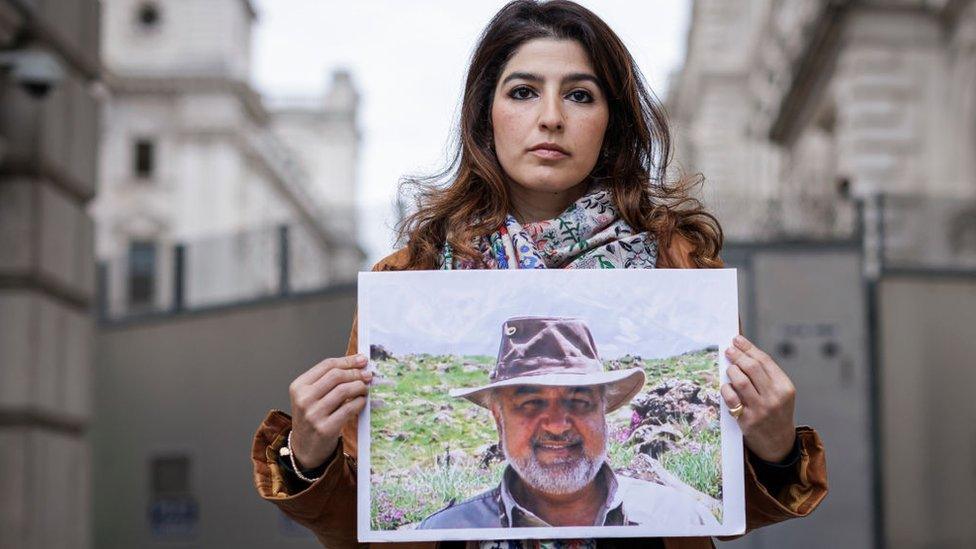
Mr Tahbaz's daughter, Roxanne, held a protest outside the Foreign Office last year to urge the government to bring her father home
The report also highlighted "considerable ministerial transience" in recent years, with five different foreign secretaries holding the post during Mrs Zaghari-Ratcliffe's detention.
It said this contributed to "inconsistency of approach and increases the risks of missing opportunities".
The committee called for a new post - a director for arbitrary and complex detentions - with a "direct line to the prime minister", to provide a single point of contact for families and coordinate the government's response.
The report rejected the Foreign Office's "presumption" that "quiet diplomacy" and "family silence is always appropriate" in hostage-taking cases.
"Silence abets state hostage taking," it said, adding that the government should use "the strongest possible language" to call out cases where detentions are being used for leverage.
A Foreign, Commonwealth and Development Office spokesman said: "Consular officials are available 24/7 for families to receive tailored support."
He added: "The best interests of British national detainees is at the heart of our consular work and we support and work with their families wherever we can."
- Published13 May 2022
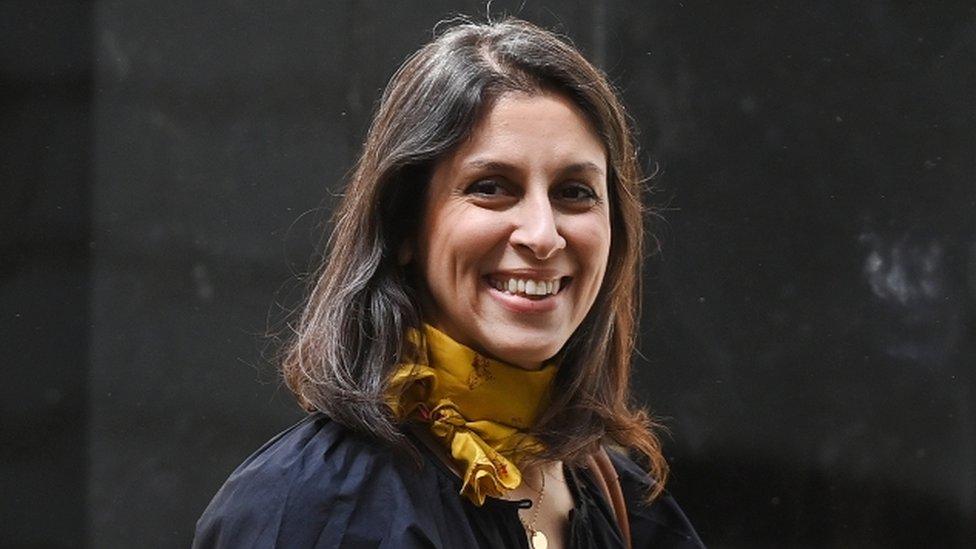
- Published23 May 2022
